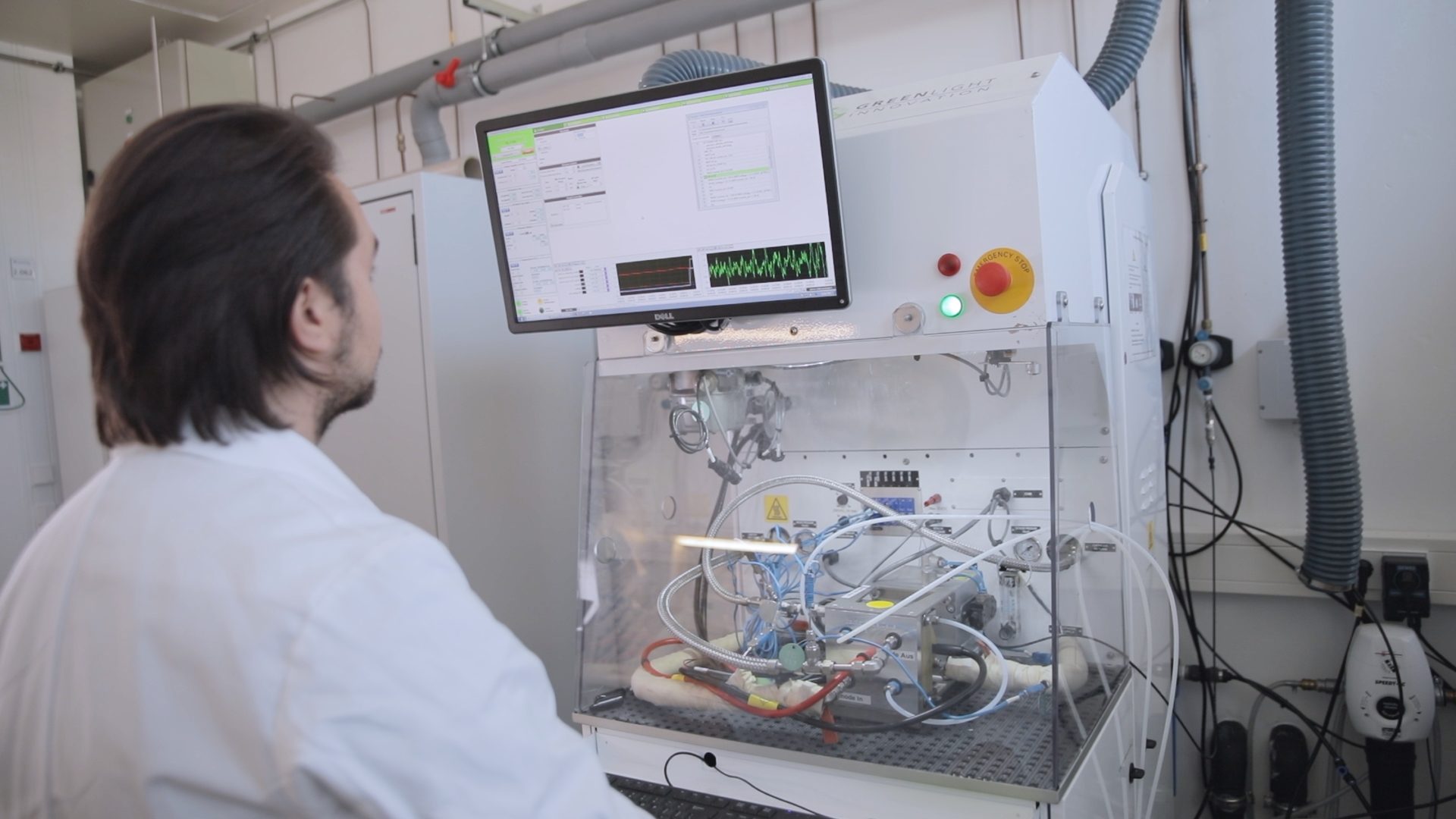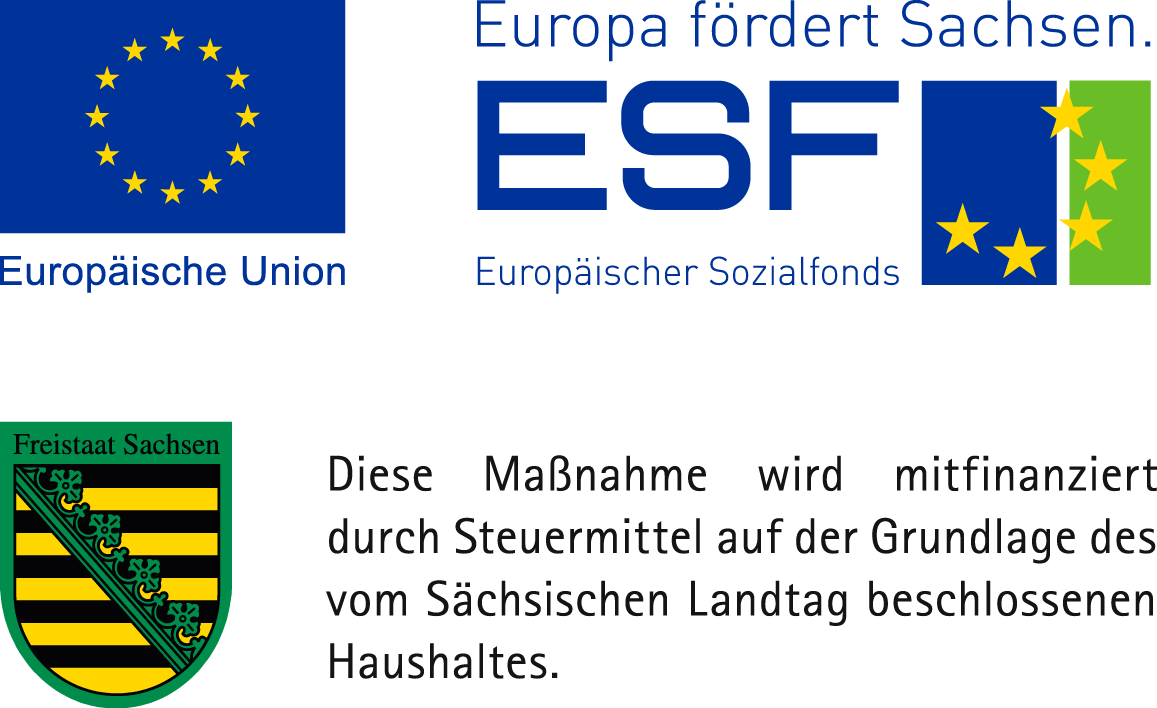Unique research platform: Fraunhofer Hydrogen Lab Görlitz becomes a pioneer for the hydrogen economy
The development of future-proof and sustainable hydrogen technologies is crucial for the success of the energy transition. Because hydrogen makes mobility, industry or heat generation CO2-neutral – and it enables the energy cycles of these sectors to be connected. The Fraunhofer Hydrogen Lab on the Innovation Campus Görlitz (HLG) will provide a unique research infrastructure for this purpose in the future and combines the expertise of the Fraunhofer Institute for Machine Tools and Forming Technology IWU and the Fraunhofer Institute for Microstructure of Materials and Systems IMWS. Today, the HLG received the funding decision virtually.


Environmentally-friendly fuel for cars, clean chemical energy storage, sustainable raw material for industry – the potential applications for hydrogen are manifold. The lightest element in the universe becomes even more attractive because it can be produced in a climate-neutral way, for example by means of electrolysis when using electricity from renewable energies. However, the use of hydrogen is still far from widespread in society and industry. This is due, among other things, to the lack of economical and efficient technologies.
With the Fraunhofer Hydrogen Lab Görlitz, an internationally unique research platform is now being established where innovative technical approaches can be developed and tested along the entire hydrogen value chain – from hydrogen production to storage and use. Innovative solutions for fuel cells, for example, are in demand worldwide. These can supply electricity both for mobile use in vehicles and for stationary use to supply neighborhoods and industrial sites.
The Fraunhofer Institute for Machine Tools and Forming Technology IWU and the Fraunhofer Institute for Microstructure of Materials and Systems IMWS have joined forces as partners for this purpose. They are jointly building the HLG on the Innovation Campus Görlitz. Construction work will begin at the end of the year. At the end of 2022, the HLG research platform, with an electrolysis capacity of around 10 megawatts, is scheduled to start research operations.
Research platform with charisma beyond the region
"Hydrogen is the energy carrier of the future! That is why the development of sustainable hydrogen technologies is a cornerstone of the new energy policy. We are supporting the establishment of the HLG with around 30 million euros, as it is not only structural development in Lusatia that will benefit from the HLG. With the establishment of the HLG, the city of Görlitz will become a blueprint for successful structural change throughout Germany. For Saxony's companies, the resulting solutions offer the opportunity to open up completely new business areas and future markets," said Thomas Schmidt, Saxony's Minister of State for Regional Development, at the handover of the funding decision. In addition, the project will receive approximately 11.6 million euros in funding from the German Federal Ministry for Economic Affairs and Energy as part of the Structural Strengthening of Coal Regions (STARK) program.
"We are convinced that hydrogen technologies will be a central building block for the future energy sector, the supply of raw materials to industry and the mobility of tomorrow. We want to use our expertise to develop affordable, safe and environmentally-friendly solutions and jointly enable companies to use them to open up new markets along the value chain of the incipient hydrogen economy. This is a sustainable contribution both towards the successful transformation process and the strengthening of economic power in the region as well as towards intelligent climate protection," says Dr.-Ing. Sylvia Schattauer, Head of Hydrogen Technologies at the Fraunhofer IMWS.
"Lusatia is and will remain an energy region. Today, it is still characterized by lignite. Hydrogen is not only an alternative energy carrier of the future. The production of innovative system components also offers great potential for new value creation and high-quality jobs in the region. Lusatia's companies have a unique opportunity to be at the forefront of a technology shift. The cooperation with the Hydrogen Lab Görlitz offers the best prerequisites for this," says Prof. Dr.-Ing. Welf-Guntram Drossel, Managing Director of the Fraunhofer IWU.
New production processes provide competitive advantages
In the Hydrogen Lab on the Innovation Campus Görlitz, starting in 2023, up to 30 scientists will examine, for example, the stacks of electrolysers and fuel cells in which electrical energy is generated by a reaction of hydrogen and oxygen. They will evaluate technology systems or investigate the materials used down to the microstructure level in order to improve their reliability and service life or to make new properties and improved application behavior possible. Power electronics is also part of the HLG's range of activities, as are questions of digitalization and certification. One focus is the further development of manufacturing technologies for electrolyzers in the direction of large-scale production and mass production. The research results form the basis for new or improved products, processes and business models that companies can draw on to secure a good competitive position in the emerging German and global hydrogen economy at an early stage.
In order to keep industry's needs in mind from the outset, the two Fraunhofer institutes are cooperating closely with Siemens Energy in developing the platform. "Cooperation between research institutions and industry is a crucial key to shaping the future energy market, in which we must bring new and sustainable technologies to bear. The Innovation Campus Görlitz opens up perspectives for this and is at the same time an important and central element in the transformation process of Görlitz as a manufacturing location. I am sure that we are on the right track with our cooperation with Fraunhofer IWU and Fraunhofer IMWS," says Sven Werner, site manager of Siemens Energy Görlitz.